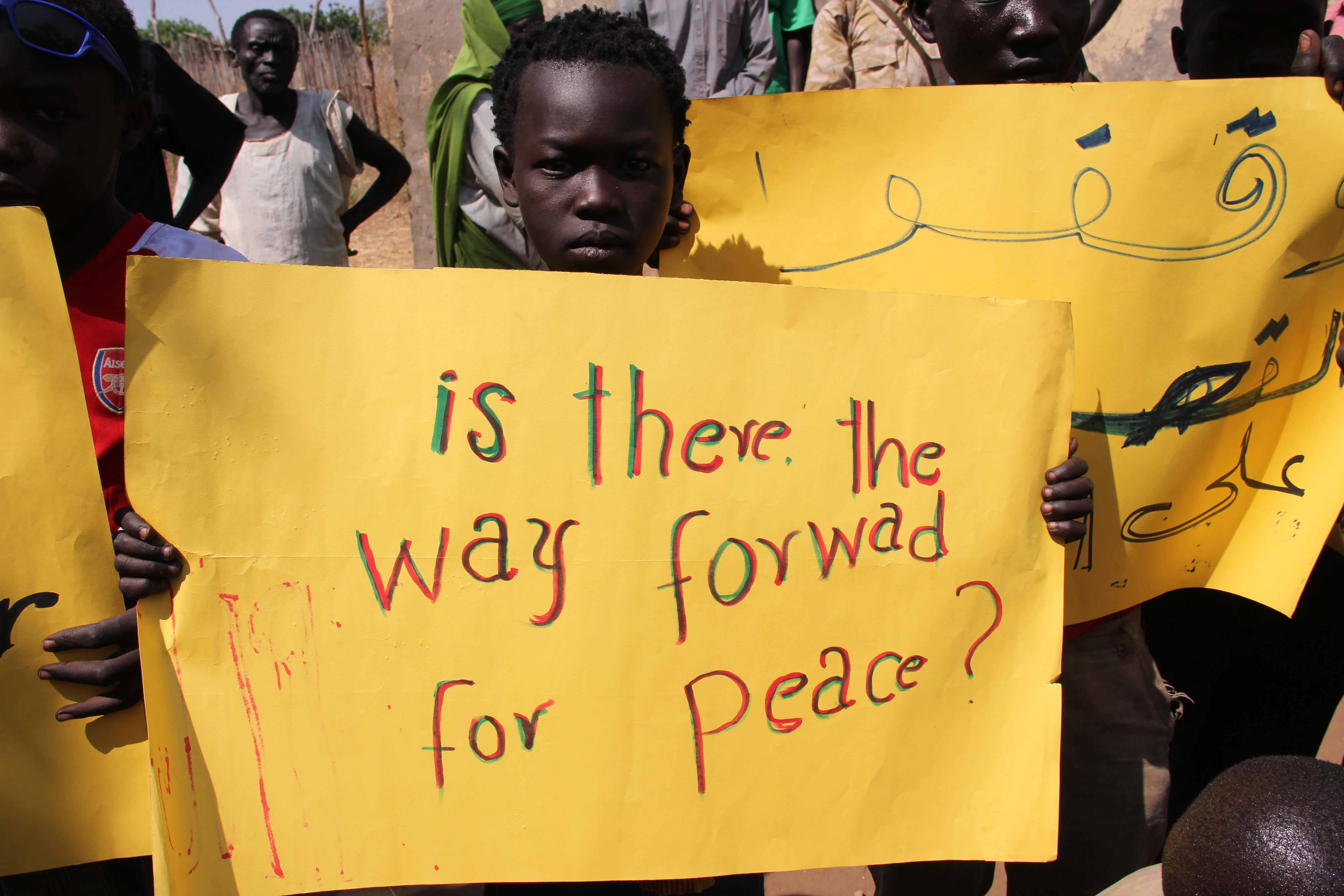‘There was nobody to help us’
"If no aid comes there will be more casualties. If this situation continues until next March there will be no people here.”
THE GOVERNMENT of Sudan (GoS) is reportedly preparing a fresh offensive against its own Muslim and Christians civilians in Blue Nile State who oppose its extremist Islamist agenda. 300,000 have already fled the country with 38,000 currently displaced within Blue Nile following decades of aerial bombardments, missile attacks and ground offensives by President Al-Bashir’s forces.
Earlier this month a group from Humanitarian Aid Relief Trust (HART), including Baroness Cox, met with community leaders and Internally displaced people (IDPs) who expressed deep concern regarding the GoS military forces being strengthened following the lifting of the US sanctions in October 2017. Despite the 2016 ceasefire between President Al-Bashir’s government and the Sudanese People’s Liberation Army-North (SPLA-N), the purchase of two new fighter jets is causing particular alarm among locals.
“Although they have stopped fighting, the government continue with their agenda,” said Benjamin Kuku, HART Partner working in Blue Nile. “There is a build-up of troops on the border. They are building supplies of Iranian missiles in Kurmuk, Damazin and Bau and have purchased fighter jets from Russia. It is possible that money is available to them because of the lifting of sanctions last October.”
The humanitarian situation there remains largely unreported – and tragic. Some 300,000 people have fled to nearby countries. More than 90,000 remain in opposition-held territory, while many others, such as those from the Ingessana Hills, are forced off their land which is gifted by the government to some Arab leaders or mercenaries.
Divisions within the opposition group SPLM-N has caused further displacement among the civilians. The constant need to resettle has resulted in a few crops being cultivated and a severe food shortage. HART visited representatives of 9,000 IDPs in Wadaka who had fled from Danfona in the middle of the night, to escape conflict.
They had no possessions and HART was the first NGO to reach them. Sumaya Baria Nur, an IDP in Wadaka, recalled: “In Danfona, we have everything including stored food, but they were all burnt. We lost everything. On the journey, some people were injured. They took all our cattle. We fled without anything. When we came here, there was nobody to help us.”
“They are trying to survive,” Baroness Cox said, “scavenging for food, eating leaves and roots with no nutritional value, to ease hunger pains. They have no other supplies such as clean water or blankets.”
Antar Juma, the chief of the JumJum tribe, pleaded for help from the humanitarian agencies in the international community. “I urge the humanitarian actors and agencies to find a way to help the people here in Wadaka because their needs are urgent and they’re living in a very difficult situation. If no aid comes there will be more casualties. If this situation continues until next March there will be no people here.”
There is deep distrust of the Government of Sudan, making Blue Nile officials and civilians reluctant to accept aid from Khartoum, especially food aid, in case it has been tampered. Sodi Koba, Director of Sudan Relief and Rehabilitation Agency, asked: “How can those in the government of Sudan, who are killing us, send help while killing their own people? They destroy our mosques, churches, schools. Why? Because we’re black or different Muslims or we have our own culture? We don’t understand. In Blue Nile, there are so many Muslims who are being killed. People are hungry, tired, suffering and are really in need. But it must come from sources we can trust.”
Baroness Cox is now calling on the UK Government and international community to acknowledge the suffering of the people in Blue Nile and support cross-border aid to reach civilians without food, access to water, education or healthcare. “Cross-border aid is essential to the long-term survival of the people in Blue Nile. Khartoum’s refusal to allow this demonstrates failure to comply with the conditions required by the US for the lifting of sanctions. The UK Government should cease to adopt policies, including the promotion of trade links with the government of Sudan, which provide credibility and support for the regime until they allow cross-border aid to reach the vulnerable civilians in the Blue Nile and the Nuba Mountains.”
Baroness Cox also called on the international community to act quickly, adding: “Urgent action is needed to provide the food and health care for these civilians which they desperately and urgently need.”
Press release distributed by Pressat on behalf of Humanitarian Aid Relief Trust, on Monday 29 January, 2018. For more information subscribe and follow https://pressat.co.uk/
Sudan BlueNile Sanctions Humanitarian Foodshortage Starvation Displacement Peace Conflict Oppression Persecution Genocide Charities & non-profits Government
You just read:
‘There was nobody to help us’
News from this source:



